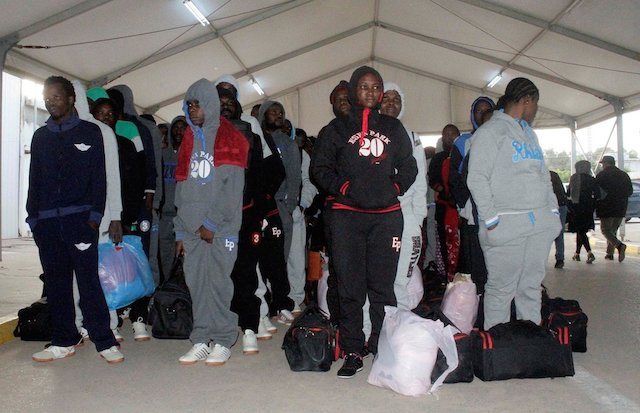The Federal Government and the International Organisation for Migration evacuated no fewer than 5,219 stranded Nigerians between February and December 2023, Sparklightnews has learnt.

This is according to figures obtained from the IOM and the National Emergency Management Agency.
According to information obtained from the International Organization for Migration (IOM) and the National Emergency Management Agency, over 5,000 stranded Nigerians were evacuated from various countries between February and December 2023
Sparklightnews report that, 2,849 stranded Nigerians were evacuated from Sudan, 1,916 from Libya, 441 from the Niger Republic, and 13 from Saudi Arabia in the last 11 months.
It was gathered that in December, 281 stranded Nigerians were received from Libya and 161 Nigerians were repatriated from Libya.
In October, 108 stranded Nigerians were evacuated from Libya; 155 were repatriated from Libya in September, and in August, 459 Nigerians trapped in Libya were repatriated.
In July, 205 stranded Nigerians were evacuated from Sudan, 340 stranded Nigerians from Sudan and Libya were received in June, while 2,678 were received in May from Sudan, Saudi-Arabia and Niger Republic.
Also, 403 stranded Nigerians were evacuated from Libya and Niger Republic in April, 279 stranded Nigerians were received in March from Libya and 150 were received in February from Niger Republic.
On November 23, 2023, the Chairman, Nigerians in Diaspora Commission, Abike Dabiri-Erewa, warned Nigerians against travelling abroad without proper documentation.
Dabiri-Erewa spoke when she visited some stranded Nigerians who violated Canada’s immigration laws.
A retired ambassador to Algeria, Mohammed Mabdul, explained that Nigerians were generally restless and keen to travel abroad for the so-called “greener pasture”.
Mabdul said, “Nigerians are generally restless and keen to travel abroad for the so-called greener pasture. Unfortunately, due to low qualifications and lack of basic skills, they become stranded and unemployed in their host country.”


























